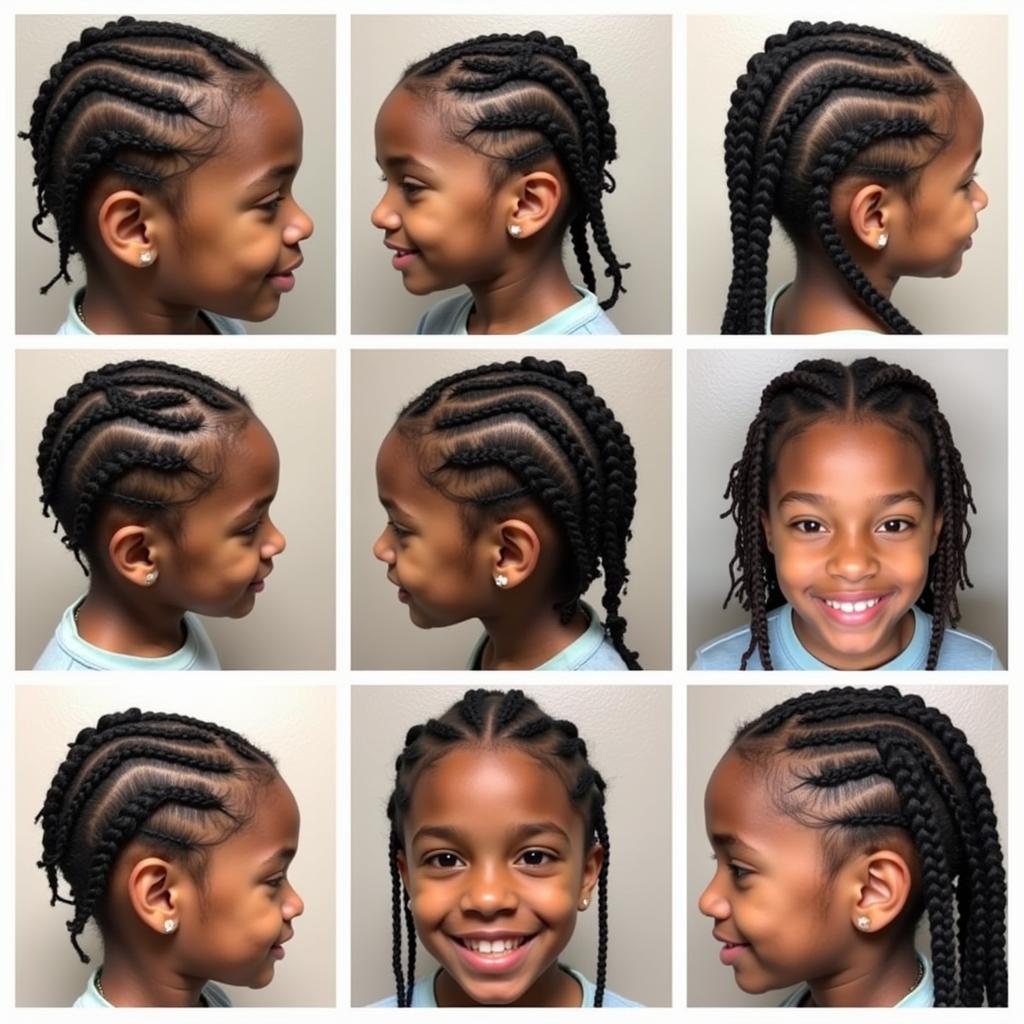Exploring the Rich Heritage of African Female Tribes
African Female Tribes represent a diverse tapestry of cultures, traditions, and social structures across the continent. From the matrilineal societies of West Africa to the pastoralist communities of East Africa, women play vital roles in their respective tribes, shaping their communities and preserving their unique heritage. This article delves into the fascinating world of African female tribes, exploring their customs, social roles, and contributions to African society.
The lives of women within African tribes are often deeply intertwined with the natural world, their traditions reflecting a profound respect for the land and its resources. Their roles extend beyond the domestic sphere, encompassing leadership, economic activities, and spiritual practices. While generalizations can be misleading, understanding the common threads that connect these diverse groups offers a valuable insight into the rich cultural heritage of Africa. The strength, resilience, and wisdom of African women have shaped the continent’s history and continue to influence its future.
The Diverse Roles of Women in African Female Tribes
Women in African tribes hold a wide range of responsibilities, often defying Western stereotypes. They are farmers, traders, healers, artists, and storytellers, passing down knowledge and traditions through generations. In some tribes, women hold significant political power, participating in decision-making processes and leading their communities. For example, the Igbo women of Nigeria historically held considerable influence within their communities, playing key roles in trade and social organization.
The Himba people of Namibia, known for their distinctive red ochre body paint, provide another example of the diverse roles of women in African societies. Himba women are responsible for milking the cattle, building and maintaining their homes, and raising children. They also play a crucial role in preserving the tribe’s cultural heritage through their traditional crafts and storytelling.
African bride and groom make up
The Significance of Rituals and Traditions in African Female Tribes
Rituals and traditions mark important life events and transitions within African female tribes, reinforcing social bonds and transmitting cultural values. These ceremonies often involve elaborate costumes, music, and dance, reflecting the tribe’s unique artistic expression. From initiation rites marking the passage into adulthood to marriage ceremonies and funeral rites, these rituals provide a framework for understanding the world and one’s place within it.
For instance, the african circumcision ceremony holds deep cultural significance for many tribes across the continent, symbolizing the transition from childhood to adulthood. While the practice has faced controversy, it remains an integral part of many African cultures, reflecting deeply held beliefs and values.
How Do African Female Tribes Preserve Their Cultural Heritage?
African female tribes play a vital role in preserving their cultural heritage through oral traditions, storytelling, and the transmission of traditional skills and knowledge. Stories, songs, and proverbs are passed down through generations, preserving the tribe’s history, values, and beliefs. These traditions are not static but rather adapt and evolve over time, reflecting the changing circumstances and challenges faced by the tribe. The preservation of cultural heritage is essential for maintaining a sense of identity and continuity within African communities.
What are the Challenges Faced by African Female Tribes Today?
Modernization, globalization, and social change present significant challenges to traditional African female tribes. Issues such as access to education, healthcare, and economic opportunities are critical concerns for many communities. Furthermore, the impact of climate change, land disputes, and political instability pose significant threats to the livelihoods and cultural survival of many African tribes.
Despite these challenges, African female tribes demonstrate remarkable resilience and adaptability, finding ways to preserve their traditions while navigating the complexities of the modern world.
A fictional anthropologist, Dr. Anika Nkosi, specializing in African tribal cultures, explains: “The resilience of African women in the face of adversity is truly remarkable. They are the keepers of their communities’ cultural heritage, adapting and innovating to ensure its survival for future generations.”
The Power and Resilience of African Female Tribes
The stories of African female tribes are stories of strength, resilience, and cultural richness. They offer valuable insights into the diversity of human experience and the importance of preserving cultural heritage. Despite the challenges they face, African women continue to play a vital role in shaping their communities and preserving their traditions, contributing to the vibrant tapestry of African culture.
In conclusion, African female tribes offer a fascinating glimpse into the diverse cultural landscape of the continent. Their traditions, social roles, and contributions to African society are essential for understanding the rich heritage and enduring spirit of Africa. By learning about these communities, we gain a deeper appreciation for the strength, resilience, and wisdom of African women.
FAQ
- What is a matrilineal society?
- What are some examples of prominent African female tribes?
- How do African female tribes contribute to their communities’ economies?
- What are some of the key challenges faced by African female tribes today?
- How do African female tribes preserve their cultural heritage?
- Are there any resources available for learning more about specific African female tribes?
- How can I support organizations working to empower women in African communities?
Exploring More
For further assistance, please contact us:
Phone: +255768904061
Email: kaka.mag@gmail.com
Address: Mbarali DC Mawindi, Kangaga, Tanzania.
We have a 24/7 customer service team.

